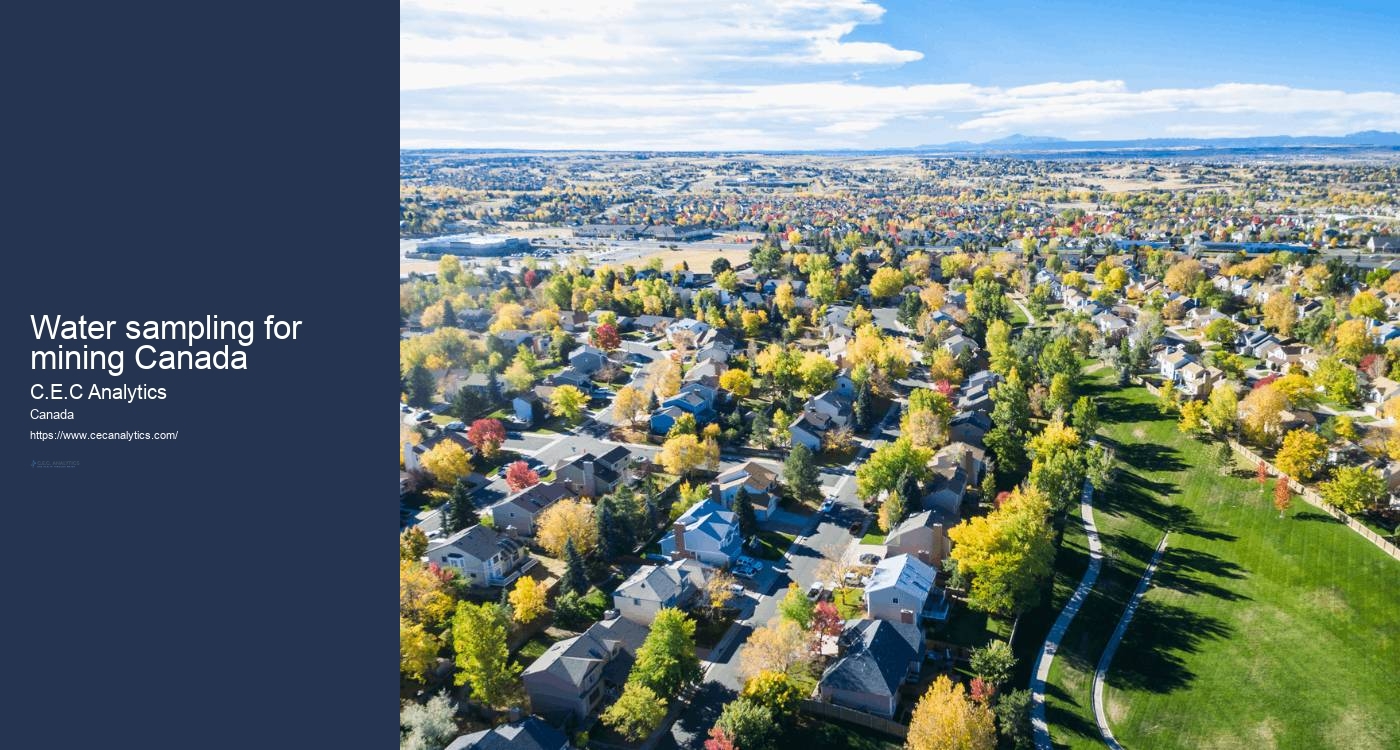

E. While predictive analytics equips you to anticipate water quality issues, real-time monitoring advancements empower you to address these challenges as they unfold. C. This isn't just about reacting to problems; it's about being proactive.
They dive deep, detecting contaminants at levels previously thought undetectable. C. Yet, it's under constant threat from contaminants, ranging from industrial waste to natural pathogens.
| Entity Name | Description | Source |
|---|---|---|
| Sewage treatment | The process of removing contaminants from wastewater, primarily from household sewage. | Source |
| Safe Drinking Water Act | A U.S. law aimed at ensuring safe drinking water for the public. | Source |
| Test method | A procedure used to determine the quality, performance, or characteristics of a product or process. | Source |
| Escherichia coli | A bacterium commonly found in the intestines of humans and animals, some strains of which can cause illness. | Source |
| Environmental health officer | A professional responsible for monitoring and enforcing public health and safety regulations. | Source |
By analyzing patterns over time, you can forecast future outbreaks, identify hotspots for immediate intervention, and allocate resources more efficiently. E. Analytics, you're not just testing water; you're protecting our most precious resource. E. Analytics worked closely with municipal health officials to implement a wastewater surveillance system that detected early signs of a viral outbreak weeks before clinical cases surged.
C. E. You're no longer limited to snapshot views of your study area. E.
In a nutshell, our customized reporting solutions are here to revolutionize how you monitor and manage water quality, giving you the tools to respond effectively to both current and future challenges. E. This blend of real-time data collection, advanced detection capabilities, and predictive analytics exemplifies the innovative science driving C. C. Groundwater recharge quality assessments
E. It's a game-changer, redefining what's possible in water quality analysis and offering hope for a healthier planet.


C. E. E. Environmental water analysis This means they're collecting data without disrupting local habitats or wildlife.
When water is unsafe, the ripple effects are profound, touching every aspect of life.


What's more, these solutions empower you with knowledge. This interdisciplinary approach isn't just about pooling knowledge; it's about creating solutions that are more effective because they're informed by a broad spectrum of insights. This means you're not just getting generic reports; you're receiving insights that are directly applicable and actionable for your specific situation.
Imagine the peace of mind, knowing you're always in the loop. Building on the foundation of real-time data provided by IoT sensors, analytics play a crucial role in transforming this information into strategic decisions for water management. Water pollution risk mapping As you move forward, you'll need to embrace innovative technologies and interdisciplinary approaches. You've seen us grow from a small startup to the leader in water and wastewater analysis, but we're not stopping there.
E. C. E.
By providing accurate, rapid results, C. With C. Less strain means fewer repairs and longer intervals between major upgrades.
C. Moreover, C. By leveraging the latest in data science and analytics technologies, C.

| Part of a series on |
| Pollution |
|---|

|
Wastewater (or waste water) is water generated after the use of freshwater, raw water, drinking water or saline water in a variety of deliberate applications or processes.[1]: 1 Another definition of wastewater is "Used water from any combination of domestic, industrial, commercial or agricultural activities, surface runoff / storm water, and any sewer inflow or sewer infiltration".[2]: 175 In everyday usage, wastewater is commonly a synonym for sewage (also called domestic wastewater or municipal wastewater), which is wastewater that is produced by a community of people.
As a generic term, wastewater may also describe water containing contaminants accumulated in other settings, such as:
Sampling may refer to:
Specific types of sampling include:
To implement these surveillance solutions, you'd need a background in environmental science or engineering, and specialized training in wastewater analysis. Certifications in public health could also be beneficial to effectively carry out the required tasks.
You'll find C.E.C. Analytics' solution easily integrates with current frameworks by enhancing data accuracy and reporting efficiency, ensuring compliance with regulations and supporting proactive water management strategies to address various environmental challenges.
C.E.C. Analytics ensures the accuracy and reliability of their data by using advanced technology and strict quality control protocols. You'll get precise results, thanks to their rigorous testing and continuous system improvements.